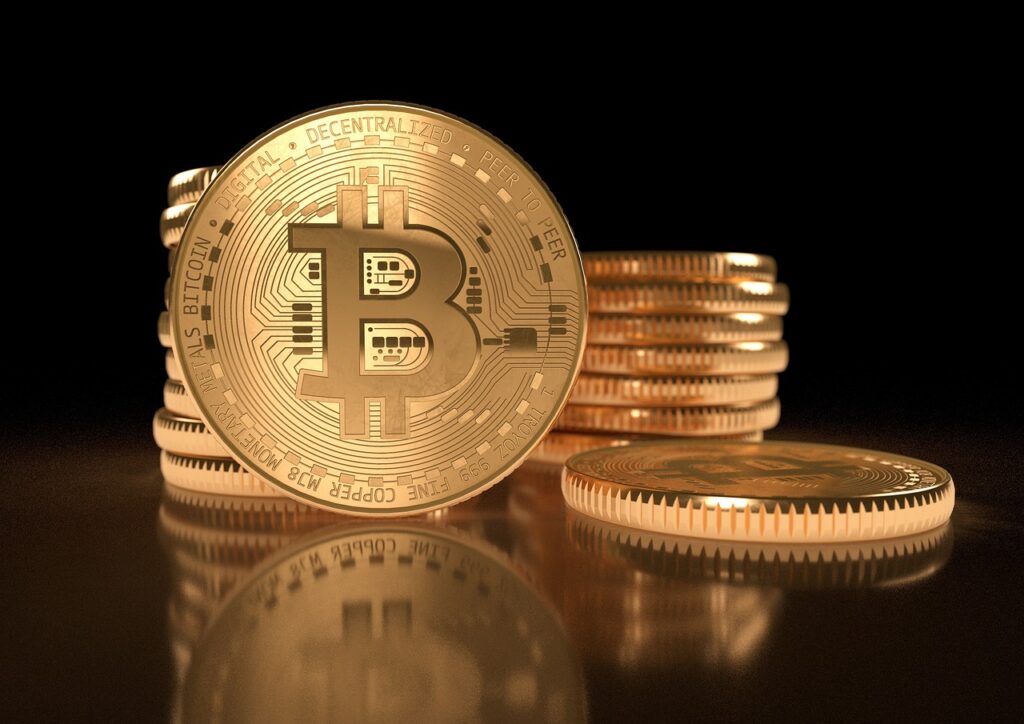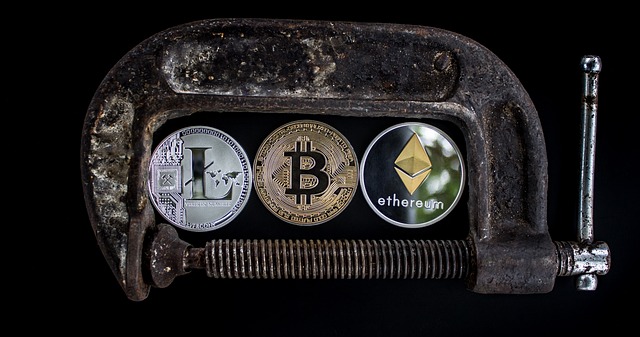The Tech Behind DeFi: Exploring Decentralized Finance
The Tech Behind DeFi: Exploring Decentralized Finance

Understanding the Concept of Decentralized Finance
Decentralized Finance, commonly referred to as DeFi, is a revolutionary concept that aims to transform the traditional financial system by leveraging the power of blockchain technology. Unlike traditional finance, which relies on centralized intermediaries such as banks and brokers, DeFi operates on a decentralized network of smart contracts. These smart contracts are self-executing agreements that automatically execute transactions when specific conditions are met.
One of the key principles of DeFi is the elimination of intermediaries, allowing individuals to have direct control over their financial transactions and assets. This decentralized nature brings forth several benefits, including lower costs, increased transparency, and enhanced accessibility. By removing the need for intermediaries, DeFi provides individuals with financial services that are accessible 24/7, without the need for cumbersome paperwork or complex processes.
In a world where trust and transparency are paramount, DeFi offers a unique solution by leveraging the immutability and security provided by blockchain technology. With each transaction recorded on a public ledger, anyone can verify and audit the transactions, ensuring that the system remains transparent and free from manipulation. Furthermore, the use of smart contracts reduces the need for trust in counterparties, as the terms of the agreement are predefined and automatically executed. This not only streamlines the process but also eliminates the possibility of fraudulent activities, providing a more secure and efficient financial ecosystem.
The Core Principles of DeFi
Decentralized Finance (DeFi) operates on a set of core principles that drive its functioning. The first principle is the removal of intermediaries, which is a key aspect of the decentralized nature of DeFi. Unlike traditional finance systems, DeFi eliminates the need for intermediaries such as banks or financial institutions, allowing users to interact directly. This not only reduces the complexity of transactions but also increases efficiency and lowers costs.
Another fundamental principle of DeFi is transparency. Transparency is achieved through the use of blockchain technology, which allows for public visibility of all transactions. Anyone can access the blockchain and verify the details of a transaction, ensuring that the system is open and trustworthy. This principle of transparency ensures accountability and makes it difficult for fraudulent activities to go unnoticed. Additionally, decentralization and transparency work hand in hand to create a level playing field for all participants, regardless of their geographical location or financial status.
The Role of Blockchain Technology in DeFi
Blockchain technology plays a pivotal role in the world of decentralized finance (DeFi). By utilizing a distributed ledger system, blockchain provides a transparent and secure platform for financial transactions without the need for intermediaries. In DeFi, blockchain technology ensures that financial operations are conducted in a decentralized manner, eliminating the reliance on traditional financial institutions.
One of the key features of blockchain technology in DeFi is its immutability. Once a transaction is recorded on the blockchain, it cannot be altered or tampered with, providing a high level of trust and security. This not only enhances the overall security of the financial ecosystem but also reduces the risk of fraud and manipulation. With blockchain technology, users can have full control over their funds, without the need to rely on centralized authorities. This decentralization empowers individuals to engage in financial activities without the need for third parties, ultimately democratizing access to financial services.
Smart Contracts: The Building Blocks of DeFi
Smart contracts, the backbone of decentralized finance (DeFi), have revolutionized how financial transactions are conducted. These self-executing contracts, built on blockchain technology, eliminate the need for intermediaries and allow for transparent, secure, and efficient transactions. By enabling automatic enforcement of contract terms, smart contracts ensure the integrity of transactions in DeFi.
One of the key advantages of smart contracts is their ability to eliminate trust issues that often arise in traditional financial systems. In DeFi, smart contracts act as a digital agreement between parties, ensuring that each step of the transaction is executed precisely as programmed. This means that participants can engage in financial activities without having to rely on a third party to oversee and verify the process. Moreover, the use of smart contracts reduces the likelihood of fraud and manipulation, as the terms and conditions are pre-determined and cannot be altered once implemented.
Exploring the Benefits of Decentralized Finance
Decentralized finance, commonly referred to as DeFi, has gained immense popularity in recent years for its numerous benefits and advantages. One of the notable benefits of DeFi is the elimination of intermediaries.

Additionally, DeFi offers increased accessibility and inclusivity. Traditional financial systems often have barriers to entry, making it difficult for individuals in underserved or marginalized communities to access financial services. However, DeFi platforms are designed to be open and accessible to anyone with an internet connection. This enables individuals who were previously excluded from the traditional financial system to participate in various financial activities, such as lending, borrowing, and trading, without any discrimination or limitations. Moreover, DeFi provides users with greater control over their own finances, allowing them to manage their assets and execute transactions autonomously, without relying on third-party institutions.
Challenges and Risks Associated with DeFi
Decentralized Finance (DeFi) has gained significant popularity in recent years, but it is not without its fair share of challenges and risks. One of the main concerns associated with DeFi is the vulnerability of smart contracts. Although smart contracts are designed to be secure and autonomous, they are not immune to bugs or hacking attempts. Any flaw in the code can be exploited, potentially leading to loss of funds for users.
Another challenge faced by the DeFi ecosystem is the issue of scalability.

Furthermore, regulatory uncertainty poses a significant risk for the DeFi space. As governments and regulatory bodies around the world grapple with the fast-paced advancements of DeFi, there is a lack of clear guidelines and regulations governing its operations. This ambiguity creates challenges for both developers and users, as they navigate through complex legal and compliance frameworks. Without clear regulatory frameworks in place, it becomes difficult to protect users from potential scams or fraudulent activities within the DeFi ecosystem.
Despite these challenges and risks, the potential benefits offered by DeFi are undeniable. As the technology matures and regulatory frameworks are established, it is expected that many of these challenges will be addressed. In the next section, we will explore the evolution of DeFi platforms and the innovative solutions being developed to overcome these challenges.
The Evolution of DeFi Platforms
The evolution of DeFi platforms has been nothing short of remarkable. In just a few short years, we have witnessed a rapid transformation in the way financial transactions take place. From simple lending and borrowing to complex derivatives trading, DeFi platforms have opened up a world of possibilities for individuals across the globe.
Initially, DeFi platforms were relatively simplistic, offering basic services like peer-to-peer lending. However, as the demand for decentralized finance grew, so did the platforms themselves. Today, we see a wide array of DeFi platforms catering to various financial needs, including decentralized exchanges and yield farming protocols. These platforms are constantly innovating, introducing new features and functionalities to enhance the user experience. As the DeFi ecosystem continues to evolve, it is clear that these platforms are playing a crucial role in shaping the future of finance.
Liquidity Providers and How They Facilitate DeFi
Liquidity providers play a crucial role in facilitating decentralized finance (DeFi) platforms. In simple terms, they are individuals or entities that contribute funds to the liquidity pools of DeFi protocols. By doing so, they improve the trading experience and ensure that there is sufficient liquidity for users to buy or sell their assets without experiencing significant price slippage.
The main motivation for liquidity providers is to earn rewards in the form of fees and incentives offered by DeFi platforms. When they contribute funds to a liquidity pool, they receive liquidity provider (LP) tokens in return. These tokens represent their share of the pool and can be used to redeem their portion of the accumulated fees and rewards. By participating as liquidity providers, individuals can earn passive income by leveraging their existing crypto holdings, thereby contributing to the growth and sustainability of the DeFi ecosystem.
Exploring Decentralized Exchanges in DeFi
Decentralized exchanges (DEXs) have emerged as a cornerstone in the realm of decentralized finance (DeFi). These platforms allow users to trade cryptocurrencies directly with one another without the need for intermediaries, such as traditional exchanges or brokers. DEXs operate on blockchain technology, which ensures transparency, security, and immutability of transactions. By eliminating the need for centralized entities, DEXs enable users to have complete control over their funds, fostering the principles of financial sovereignty and self-custody.
One of the key advantages of DEXs is the ability to maintain privacy and anonymity. Unlike centralized exchanges that often require users to go through rigorous identification procedures, DEXs do not hold custody of users’ personal information. This not only allows individuals to trade with greater privacy but also reduces the risk of potential data breaches or hacks targeting centralized exchange platforms. Additionally, DEXs provide users with greater access to a wider range of cryptocurrencies, as anyone can list their tokens on the platform without having to go through a lengthy and often expensive listing process. This creates a more inclusive ecosystem, where users can discover and invest in unique projects that may not be available on traditional exchanges.
The Future of Decentralized Finance
The future of decentralized finance (DeFi) looks promising, with significant potential for growth and innovation. As more individuals and businesses become aware of the benefits and convenience of DeFi, it is likely that we will witness a surge in adoption and usage. This could lead to an increase in the number of DeFi platforms and applications, giving users more options to participate in and contribute to the ecosystem.
One of the potential developments in the future of DeFi is the integration of artificial intelligence (AI) and machine learning (ML) technologies. These technologies have the potential to enhance the efficiency and security of DeFi platforms by automating various processes and improving risk assessment and management. With AI and ML, DeFi platforms can provide users with more personalized and tailored experiences, as well as enable more sophisticated financial products and services. However, it is crucial to address any ethical concerns and ensure proper regulation to maintain trust and transparency in the DeFi space.
What is decentralized finance (DeFi)?
DeFi refers to a financial system that operates on the blockchain, allowing users to access financial services without the need for intermediaries such as banks.
What are the core principles of DeFi?
The core principles of DeFi include transparency, open access, censorship resistance, and financial inclusivity.
How does blockchain technology play a role in DeFi?
Blockchain technology underpins DeFi by providing a secure and transparent ledger for financial transactions, eliminating the need for centralized authorities.
What are smart contracts and why are they important in DeFi?
Smart contracts are self-executing agreements that automatically execute predefined conditions when certain criteria are met. They are crucial in DeFi as they enable trustless and automated financial transactions.
What are some benefits of decentralized finance?
Decentralized finance offers benefits such as increased financial inclusivity, lower transaction fees, improved privacy, and the ability to access financial services globally.
Are there any challenges or risks associated with DeFi?
Yes, DeFi platforms can face challenges such as security vulnerabilities, regulatory uncertainty, and the potential for smart contract bugs. Users must also be cautious of potential scams and fraudulent projects.
How have DeFi platforms evolved over time?
DeFi platforms have evolved to offer a wider range of financial services, including lending and borrowing, decentralized exchanges, stablecoins, and yield farming. They have also become more user-friendly and accessible.
What are liquidity providers and how do they facilitate DeFi?
Liquidity providers are individuals or entities that supply liquidity to DeFi platforms, allowing users to trade and access financial services. They are incentivized through fees and rewards.
What are decentralized exchanges (DEXs) in DeFi?
Decentralized exchanges are platforms that allow users to trade cryptocurrencies directly with each other, without the need for intermediaries.

What does the future hold for decentralized finance?
The future of DeFi looks promising, with potential advancements in scalability, interoperability, and the integration of traditional financial services. It is expected to continue revolutionizing the financial industry and increasing financial inclusivity.
Todays Featured Product:
Buy, exchange and grow your crypto securely with a Ledger hardware wallet, combined with the Ledger Live app. It’s never been easier to keep your crypto safe and accessible. Buy direct from Ledger.com and get todays Special Offers Here.




